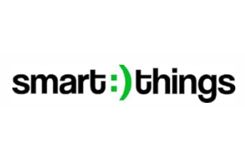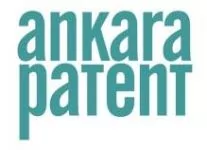With the fast adaptation of smart products to our daily life, it is seen that the word "SMART", is frequently used in trademark applications. For Turkey, when viewed from the search system of the Turkish Patent and Trademark Office, it can be seen that 3377 trademark applications including the phrase SMART have been made.
While the area of use of the phrase SMART has such an effect on our daily lives, the distinctiveness of the word and its descriptiveness in terms of the goods and services for which it is desired to be registered has become a matter of discussion. The decision "SMART:) THINGS" dated October 15, 2020 and numbered T-48/19, which was made by the General Court of the Court of Justice of European Union, is also important in terms of the Court's evaluation of the phrase SMART and may shed light on future examinations.
When it is focused on the background of the dispute, it is seen that on March 6, 2013, the applicant "SMART THINGS SOLUTIONS GmbH" made trademark application to the European Union Intellectual Property Office (EUIPO) for "SMART :) THINGS" regarding to Classes 9, 20 and 35, and the trademark was registered.

On 29 February 2016, an application was filed by Samsung Electronics GmbH before EUIPO Cancellation Division for a declaration that the contested mark was invalid in respect of all the goods and services, and this application was rejected on March 8, 2018. Samsung Electronics GmbH applied for an appeal for this decision. However, the decision of EUIPO Cancellation Division was annulled by the EUIPO Boards of Appeal and the contested mark was declared invalid in respect of all the goods and services on 20 November 2018.
First of all, it is stated in the decision that the phrase "SMART:) THINGS" consists of words that can be understood by both average consumers and more conscious consumers in countries where English is understood, and that the visual element is a sign which is frequently used in electronic media and does not have distinctive character; secondly it is pointed out that the trademark "SMART:) THINGS" lacks distinctiveness. Therefore; the Board of Appeal found that the trademark was descriptive on the grounds that it consisted of signs indicating the kind, quality, quantity, intended purpose, value or other characteristics of the goods or services in terms of the goods and services covered by the registration, and they reached the result that the trademark was devoid of distinctiveness. The trademark was declared invalid in terms of all goods and services covered by the trademark due to the abovementioned reasons.
As a result of this, the Applicant brought the dispute before the General Court of the European Court of Justice.
The General Court primarily examined the trademark "SMART:) THINGS" in terms of descriptiveness:
The applicant claims that the phrase SMART and the sign ":)" are not directly descriptive in terms of goods and services covered by the registration. They stated that average consumers could not establish a direct connection between the phrase SMART and artificial intelligence at the time when the application was filed, and this phrase was associated with humans or living things and this was also the case in terms of the figurative element ":)" which expresses positive emotions. In addition, it was argued that the figurative element ":)" would not create any associations in the perception of consumers in any way regarding the value or quality of the goods and services, and the possibility of association was further decreased with the word combination that the trademark comprised.
- The General Court first started its examination in terms of the relevant consumer group:
- It was decided that the goods and services covered by the trademark "SMART:) THINGS" were aimed at the general public and at a specialist public in the field of information technology and in that of business; since the expression consisted of terms belonging to the basic English vocabulary commonly used in the fields of information technology and television or international business transactions, therefore the ground for invalidity was not limited to the Member States where English is the official language.
- The General Court then continued its examination regarding the Word elements SMART and THINGS :
- In this examination, especially when the word "THINGS" and the scope of its use was considered, it was concluded that this phrase was definitely descriptive for services covered in class 35. Because it was thought that the phrase THINGS would refer to many concrete things and thus naturally expanding the limit of descriptiveness.
- In terms of the word "SMART"; it was acknowledged that the grounds argued by the applicant could not be accepted because the word SMART describes the goods and services covered by the mark. First of all, with regard to the goods covered by Class 9, reference was made to the fact that these goods are electronic or technologically sophisticated goods which can have intelligent functions.
- It was also acknowledged that the word "SMART" had a descriptive meaning in terms of good covered by Class 20. This was done by referring to furniture or mirrors which can electronically adapt themselves to certain conditions, which can be remotely controlled or which can be automatically controlled via smart software applications. Furthermore, it was decided that even if the phrase SMART was used to mean "chic, fashionable", it would be descriptive in terms of the goods which do not have any technological features such as cork, ivory, amber or meerschaum, which are specified in Class 20, due to the fact that they indicate kind, quality and feature.
- As it was argued by the applicant, the claim that the phrase SMART was a feature attributed only to humans or living things was not proven, and documents submitted also showed that, contrary to this claim, the phrase SMART had been used for many technological devices at that time.
As a result of these evaluations, the General Court accepted that the assessment that the phrase SMART described all goods and services covered by the trademark as kind and qualification was not erroneous. Moreover, the claim that a distinctive trademark was created as a result of the combination of phrases argued by the owner of the trademark was not deemed valid.
- Lastly, the General Court carried out the examination in terms of the figurative element ":)" and visual elements of the trademark:
- Firstly, the General Court decided that it was correct to find that the font of the trademark differed slightly from the most common fonts, but that different was a small detail which cannot be recognized by average consumers.
- Contrary to what the applicant argued, the Board of Appeal did not find the emoticon ":)" as descriptive, but found rather that it was devoid of any distinctive character.
- Considering the claim of the applicant that the emoticon ":)" represented a positive emotion associated with humans, it was pointed out that this claim was not well founded. As the Board of Appeal stated, the emoticon consisting of the characters ':' and ')' represents a smile and its use is ubiquitous in emails and other types of electronic message and also in advertising.
- Moreover, the General Court also acknowledged that figurative element ":)" drew attention to positive aspects of the smart things regarding the Word SMART, and had an objective to underline that the goods concerned had positive features.
- The figurative element ":)" could not divert attention from the message given by the phrases "SMART THINGS" in the trademark.
- Regarding the element of green color, it was decided that the Board of Appeal's decision that the color was used to separate words from each other was also valid.
In conclusion, the applicant's claims were dismissed in terms of descriptiveness evaluation.
Secondly, The General Court examined the trademark "SMART:) THINGS" in terms of "distinctiveness":
In their allegations, the applicant stated that the distinctiveness was not separately examined by the Board of Appeal.
The General Court thought that the descriptiveness and distinctiveness were two quite overlapping grounds, and in particular, it could be accepted that a word describing the features of the goods or services did not have any distinctive character with respect to the said goods or services. Moreover, the General Court was of the opinion that, unlike the applicant, the Board of Appeal examined the distinctiveness of the trademark.
The Board Appeal thought that the elements that make up the trademark, beyond their meanings that characterize the goods, had no characteristic in terms of memorability, which allows the relevant consumers to easily and instantly memorize the sign. Considering the grounds stated while conducting the examination of descriptiveness, the General Court also accepted that the elements constituting the application was also devoid of distinctiveness and the way they came together was also not sufficient to distinguish the trademark.
In conclusion, the applicant's claims were rejected on the grounds that the trademark "SMART:) THINGS" is both descriptive and lacks distinctiveness.
When all the points that have been stated are considered, it is understood that today it will not be easy to register the phrase SMART as a trademark without any other distinctive element. With the development of technology, many goods and services becoming "smarter" has made the phrase SMART descriptive for such goods and services.
The content of this article is intended to provide a general guide to the subject matter. Specialist advice should be sought about your specific circumstances.


